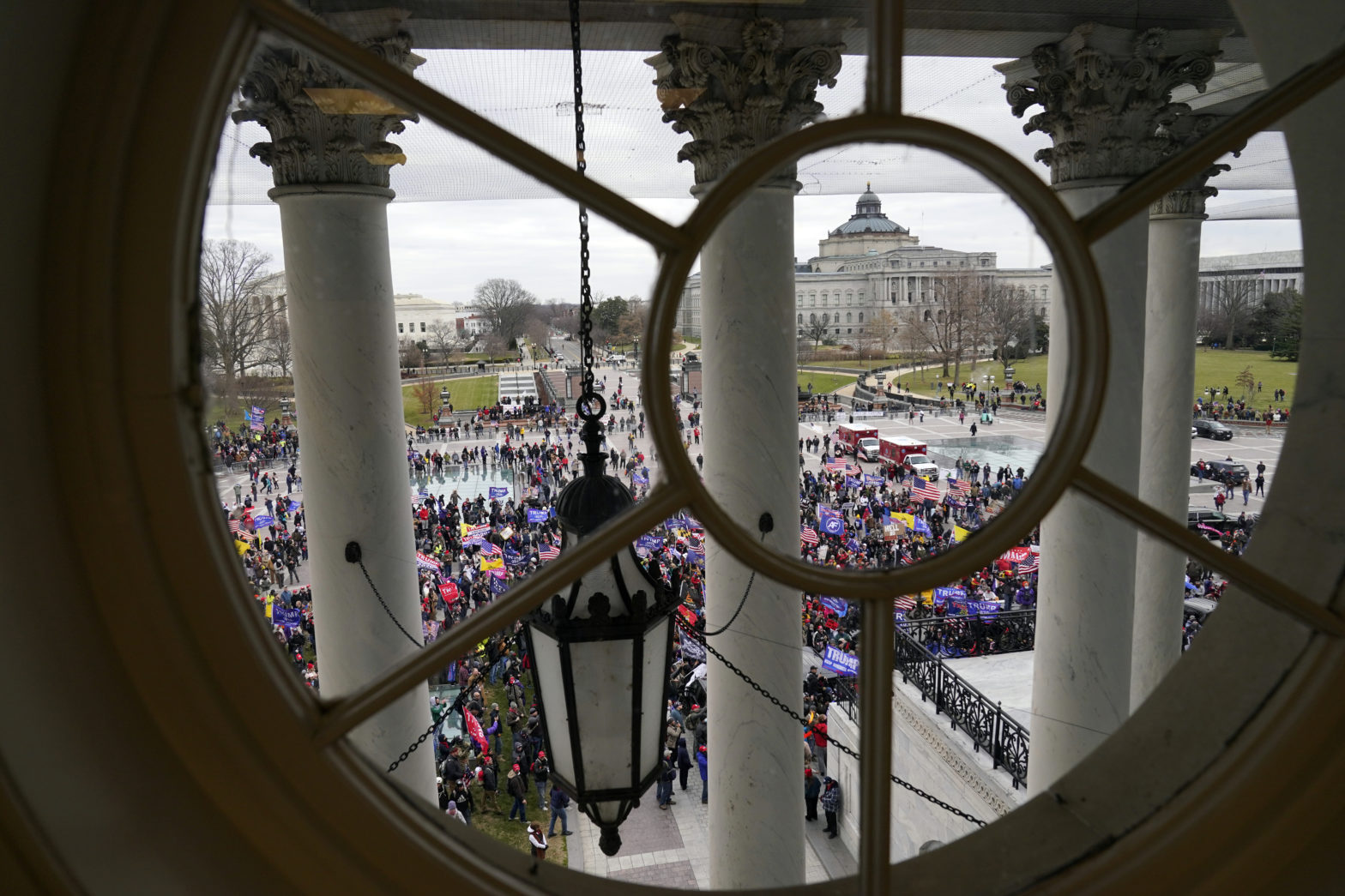General News
Meropi Kyriacou Honored as TNH Educator of the Year
NEW YORK – Meropi Kyriacou, the new Principal of The Cathedral School in Manhattan, was honored as The National Herald’s Educator of the Year.

Most people learn early on the dangers of generalizing. Poet William Blake put it bluntly about two hundred years ago: “To generalize is to be an idiot.”
For some reason the lesson doesn’t stick. America’s political discourse is overflowing with multifaceted categories that few bother to unpack. Case in point: the January 6 protesters.
This is not a monolithic group. There are at least three separate categories of January 6 protestors. One is the violent rioters who stormed the United States Capitol. They are insurrectionists and criminals who should be prosecuted to the fullest extent of the law. (And if any politicians – including Donald Trump – facilitated the violence, they, too, should be prosecuted.)
Another category is those who stayed outside the Capitol and non-violently protested what they believe was a fraudulent 2020 presidential election. These people are mistaken (some even delusional), but they are not criminals. Impassioned non-violent protest – however misinformed or misguided – is a core tradition of American democracy.
And a third category is those who went to the January 6 Trump rally on the Ellipse and then went home. They didn’t even go to the Capitol.
A striking example of the failure to recognize these distinctions made headlines recently when the Republican National Committee censured Representatives Liz Cheney (R-WY) and Adam Kinzinger (R-IL), the two Republican members of the congressional January 6 committee. According to the RNC, “Representatives Cheney and Kinzinger are participating in a Democrat-led persecution of ordinary citizens engaged in legitimate political discourse…”
Huh? Legitimate political discourse?
This statement makes no distinction, whatsoever, between the peaceful rally-goer who merely attended the Trump rally and the violent, trespassing insurrectionist who assaulted police officers within the halls of the Capitol. Was the RNC really saying everyone subject to the January 6 committee’s sweeping investigation engaged in legitimate political discourse, even those with blood on their hands?
Apparently so.
Generalizations like this are all too common. And the ambiguity doesn’t just cause confusion. It poisons the debate. The RNC’s critics took the statement literally and accused Republicans of endorsing deadly violence. As the New York Times put it: “The Republican Party on Friday officially declared the Jan. 6, 2021, attack on the Capitol and events that led to it ‘legitimate political discourse’….”
Despite RNC Chair Ronna McDaniel’s meager efforts to walk things back on Twitter, the censure’s text hasn’t changed. And many Americans now think the Republican party itself stands for political violence and deadly insurrection. That’s not good for anyone.
This state of affairs is the predictable result of the RNC’s extraordinarily sloppy failure to draw any distinctions between the January 6 protesters – a heterogeneous group whose activities ranged from non-violent (and, yes, legitimate) political discourse all the way to violent insurrection.
William Blake would not be impressed.
William Cooper’s commentary has appeared in The Wall Street Journal, San Francisco Chronicle, PBS and USA Today, among others.
NEW YORK – Meropi Kyriacou, the new Principal of The Cathedral School in Manhattan, was honored as The National Herald’s Educator of the Year.

KYIV, Ukraine (AP) — Three Russian missiles slammed into a downtown area of the northern Ukrainian city of Chernihiv on Wednesday, hitting an eight-floor apartment building and killing at least 13 people, authorities said.
TORONTO - Toronto Raptors player Jontay Porter was banned for life from the NBA on Wednesday after a league probe found he disclosed confidential information to sports bettors and wagered on games, even betting on the Raptors to lose.
JERUSALEM — Israeli Prime Minister Benjamin Netanyahu said Wednesday his country would be the one to decide whether and how to respond to Iran’s major air assault earlier this week, brushing off calls for restraint from close allies.
WASHINGTON — President Joe Biden said Wednesday he strongly supports a proposal from Republican House Speaker Mike Johnson to provide aid to Ukraine, Israel and Taiwan, sending crucial bipartisan support to the precarious effort to approve $95 billion in funding for the U.
BRUSSELS - European Union leaders over a two-day summit of the special European Council will discuss economic and competitiveness issues in Ukraine, Türkiye, the Middle East and Lebanon, stated Prime Minister Kyriakos Mitsotakis upon his arrival in Brussels on Wednesday night.